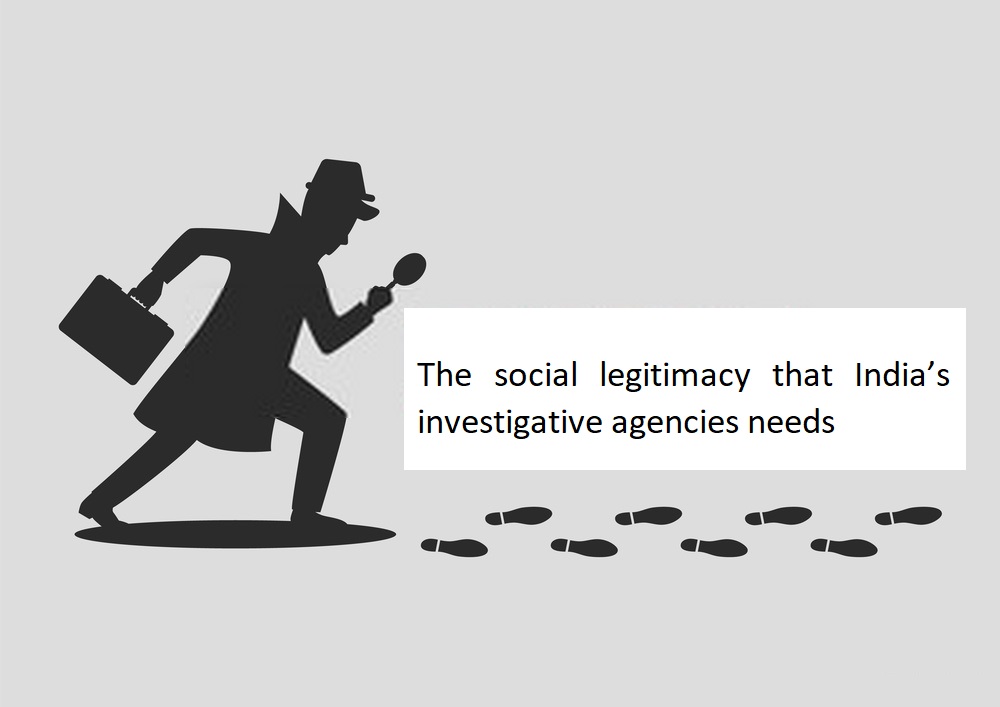The social legitimacy that India’s investigative agencies needs


Context
De-facto legitimacy VS Social legitimacy
- The police and investigative agencies may have de-facto legitimacy, but as institutions, they are yet to gain social legitimacy.
The image of the institution of the police
- Police should work impartially and focus on crime prevention.
- They should also work in cooperation with the public to ensure law and order.
- People hesitate to approach the police in times of despair.
What is it in the case of CBI?
- The CBI possessed immense trust in the public in its initial phase.
- But with the passage of time, like every other institution of repute, the CBI has also come under deep public scrutiny.
- Its actions and inactions have raised questions regarding its credibility, in some cases.
The image of the institution of police is regrettably tarnished by allegations of corruption, police excesses, lack of impartiality and close nexus with the political class.
What the editorial is about?
- The need for India’s investigative agencies to reclaim social legitimacy and public trust.
Major issues
Issues affecting the system
- Lack of infrastructure
- Lack of sufficient manpower
- Inhuman conditions, especially at the lowest rung
- Lack of modern equipment
- Questionable methods of procuring evidence
- Officers failing to abide by the rule book
- The lack of accountability of erring officers
Issues that lead to delays in trials
- Lack of public prosecutors and standing counsels
- Seeking adjournments
- Arraying hundreds of witnesses and filing voluminous documents in pending trials
- Undue imprisonment of undertrials
- Change in priorities with the change in the political executive
- Cherry-picking of the evidence
- Repeated transfers of officers led to a change in the direction of the investigation
These issues often lead to the acquittal of the guilty and incarceration of the innocent. This severely affects the public trust in the system.
Some considerations
Break the nexus with the political executive
- The first step is to reclaim social legitimacy and public trust.is to break the nexus with the political executive.
Status Note on Police Reforms in India
- Reform of the police system is long overdue in our country.
- The Ministry of Home Affairs has itself recognised the glaring need for the same in the “Status Note on Police Reforms in India”.
Need for a comprehensive law
- Our investigative agencies still do not have the benefit of being guided by a comprehensive law.
Need for an independent umbrella institution
- The need of the hour is the creation of an independent and autonomous investigative agency.
- There is an immediate requirement for the creation of an independent umbrella institution, so as to bring various agencies like the CBI, SFIO, and ED under one roof.
- This body is required to be created under a statute, clearly defining its powers, functions and jurisdictions.
- Such a law will also lead to much-needed legislative oversight.
Ensure total independence
- One additional safeguard that needs to be built into the scheme, is to have separate and autonomous wings for prosecution and investigation, in order to ensure total independence.
Annual audit of performance
- A provision in the proposed law for an annual audit of the performance of the institution by the appointing committee will be a reasonable check and balance.
Need to replicate the proposed law by the state agencies
- With the police and public order under the State List, and rightly so, the burden of investigation is primarily on the state police.
- There is no reason why state investigative agencies, which handle most of the investigations, cannot enjoy the same level of credibility as that of the national agency.
- The proposed Central law for the umbrella investigative body can be suitably replicated by the states.
Need to learn best practices
- There is a need for regular up-gradation of knowledge, deployment of state-of-the-art technology, and international exchange programmes to learn the best practices.
Ensure women’s representation
- An issue that needs addressing at this stage is the representation of women in the criminal justice system.
- Often, women feel deterred from reporting certain offences due to a lack of representation.
Relations between the community and police
- Relations between the community and police also need to be fixed.
- This is only possible if police training includes sensitisation workshops and interactions to inspire public confidence.
- It is imperative for the police and the public to work together to create a safe society.
Conclusion
- The political executive will change with time, police as an institution will be permanent.
- Ultimately the police must remember that their allegiance must be to the Constitution and the rule of law and not to any person.
Practice Question for Mains
- An independent umbrella body that brings the various investigative agencies under one roof holds the key to shoring up their credibility. Comment. (250 Words, 15 Marks)
If you like this post, please share your feedback in the comments section below so that we will upload more posts like this.

